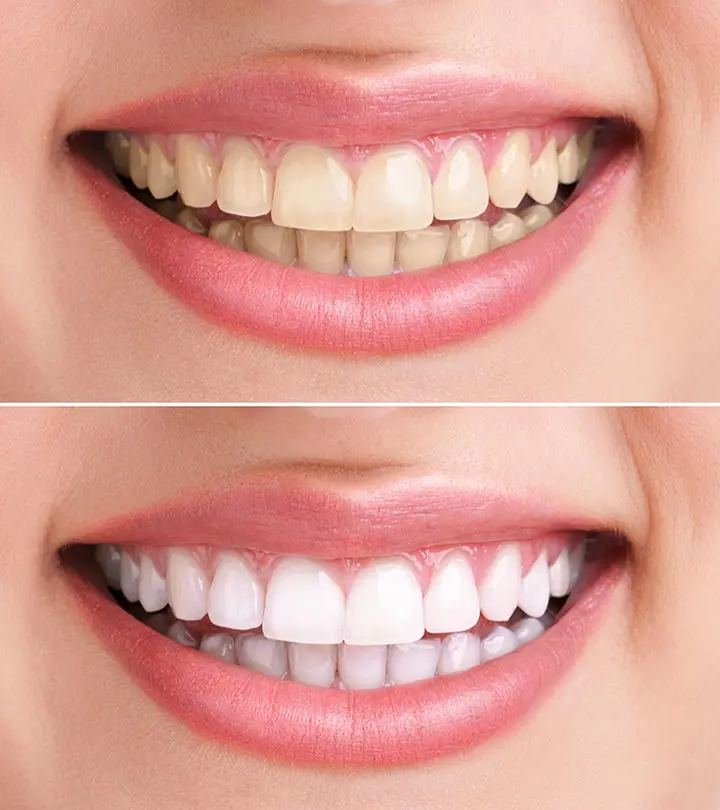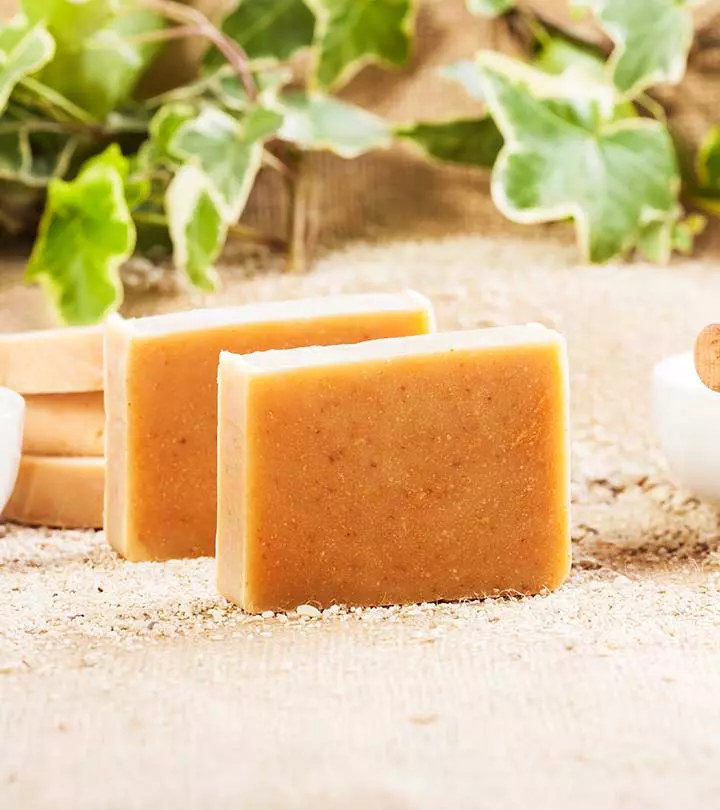How To Use Eucalyptus Oil For Sinus Congestion
Explore the potential of using this essential oil to unblock your nasal passage.

Image: i Stock
Sinus congestion is annoying, to begin with. Runny nose, throbbing headache, stabbing pain around the eyes, and a cough that doesn’t stop, it’s uncomfortable, to say the least. While sinus congestion goes away on its own, if you have trouble breathing and sleeping, try some eucalyptus oil for your sinus congestion to speed up the process! In this article, we explore how eucalyptus oil is good for sinus congestion and a few tips to keep in mind before you use it.
 Know Your Ingredient: Eucalyptus Oil
Know Your Ingredient: Eucalyptus OilWhat Is It?
The oil, extracted from the leaves of the eucalyptus tree, is known for its therapeutic, medicinal, and aromatic value.
What Are Its Benefits?
Provide nasal congestion and sinus inflammation relief, promotes respiratory and oral health, and increases pain relief.
Who Can Use It?
Generally safe for everyone, but some people may have an allergic reaction to it.
How Often?
Can be used in steam inhalation twice a day
Caution
Those with sensitive skin should be careful when using it or avoid it. The undiluted form can burn or irritate the skin and should be kept away from children.
In This Article
Is Eucalyptus Oil Good For Sinus And Nasal Congestion?

Eucalyptus (Eucalyptus globulus) is widely used for medicinal purposes. Various parts of the eucalyptus tree, like the bark, leaves, and root, are used for medicinal needs.
Eucalyptus essential oil is extracted from the leaves of the tree. This oil is known for its robust healing properties (1), (2).
 Trivia
TriviaEucalyptus oil is used to get relief from nasal congestion and sinus inflammation. It contains 1, 8-cineole, which was found to help reduce nasal congestion (3). The oil also possesses analgesic and anti-inflammatory properties (4), (5). This can help reduce inflammation in the sinus cavities and reduce pain.
As per this report, sinusitis rates are higher in the South and Midwest regions of the United States, and it is more common among women. Children under 15 and adults aged 25 to 64 are the most affected. Approximately 90% of patients with colds have an element of viral sinusitis.
Caution: Eucalyptus oil can be quite strong in its pure form. Hence, ensure you dilute it before applying it to your skin.
Key Takeaways
- Eucalyptus oil contains a key compound called 1, 8-cineole that helps clear nasal congestion.
- You can apply the oil along with coconut oil or add a few drops to a stem inhaler to relieve your clogged sinuses.
- Expectant mothers and children below 5 years of age should avoid using this oil.
Ways To Use Eucalyptus Oil To Treat Sinus And Blocked Nose
Having essential oil for sinus infection is a great way to treat this problem naturally. Eucalyptus is touted as one of the most effective remedies for sinus issue or blocked nose. There are three main ways of using eucalyptus oil to treat sinus and nasal congestion.
1. Steam Inhalation

Eucalyptus essential oil is a good antiseptic. Steam inhalation of the oil is considered beneficial for nasal congestion. This method may help in relieving colds, blocked noses, and headaches, as the steam opens up nasal passages and the eucalyptus oil provides anti-inflammatory benefits (5).
You Will Need
- Eucalyptus essential oil
- A tub of hot water
What You Have To Do
- Pour a few drops of eucalyptus essential oil in a tub of hot water.
- Lean over the tub and inhale the steaming vapor.
- Repeat this for a few minutes or until you experience relief.
How Often You Should Do This
Do this 2 times a day.
2. Topical Application

Anecdotal evidence suggests that the dilution method may be convenient when the nose blockage or sinus is quite intense. In this method, carrier oil is used with eucalyptus oil. The carrier oil may make the effect of the essential oil more tolerable.
You Will Need
- 1-5 drops of eucalyptus oil
- 1 ounce of a carrier oil (Olive oil or almond oil)
What You Have To Do
- Mix a few drops of eucalyptus oil and the carrier oil.
- Apply the mixture topically on the chest and throat.
How Often You Should Do This
Apply the oil once a day.
3. Essential Oil Diffusion

A diffuser disperses essential oils in a cool mist, mainly for aromatherapy benefits like stress relief or enhancing the air quality. The soothing mist may help clear the airways.
You Will Need
- 3-5 drops of eucalyptus oil
- A diffuser
- Water
What You Have To Do
- Add eucalyptus oil to the diffuser.
- Fill the diffuser with water as per the instructions.
- Turn on the diffuser and let the mist fill the air.
How Often You Should Do This
Use the diffuser as needed, especially when feeling congested or at night before sleeping.
You can also add eucalyptus oil to the water in a steam vaporizer to help treat your sinus congestion. Ensure that you read the instructions properly before using it.
Though many practice the topical application of pure eucalyptus oil for relief from sinus and clogged nose, it is not safe as it can burn the skin. It is important to always dilute the oil in a carrier oil before using it.
 Quick Tip
Quick TipThere are certain precautions one should take while using eucalyptus oil.
Risks And Precautions

- Eucalyptus oil in the raw form can burn one’s skin. It might prove to be harmful to people with sensitive skin and skin issues.
- Eucalyptus oil should not be used by kids. Exposure to the essential oil may cause poisoning in infants and children (6).
- Pregnant women should avoid using oil.
- Always dilute eucalyptus oil with a carrier oil before applying it to the skin to avoid irritation.
- Avoid using eucalyptus oil on or near the eyes, as it can cause irritation.
- Do a patch test before using it on larger skin areas to check for any allergic reactions.
Infographic: 2 Effective Ways To Use Eucalyptus Oil To Treat Blocked Sinus And Nose
Eucalyptus oil has been used for centuries to treat various ailments. One of its most common uses is in relieving nasal and sinus congestion. It contains compounds that act as natural decongestants. In the infographic below, we have listed two effective ways you can use eucalyptus oil for treating blocked sinuses and noses, along with the precautions you should be aware of. Take a look.

Illustration: StyleCraze Design Team
Using eucalyptus oil for sinus congestion is an age-old remedy and it is also significantly utilized in aromatherapy. This oil provides instant relief from sinus and associated symptoms like headache, nasal congestion, running nose, cough, and pain around the eyes. However, there are more eucalyptus oil benefits that you can know about to keep this amazing oil near you. You can either use eucalyptus oil for steam inhalation or dilute it with a carrier oil and directly apply it to the chest and throat. Both the methods work effectively in providing relief. However, pregnant women, infants, and children should not use eucalyptus oil. Also, if you have sensitive skin, this oil may cause skin irritation. Hence, proceed with caution and do a patch test before using it. While eucalyptus oil is a known decongestant, other essential oils like menthol, camphor, peppermint, lavender, and tea tree can be considered for treating sinus congestion as well.
Frequently Asked Questions
Can you apply eucalyptus oil directly to skin?
No, you should not apply eucalyptus oil directly to the skin. You should dilute it with a carrier oil and then apply it.
How long should you inhale eucalyptus?
You can inhale eucalyptus oil for a few minutes until you feel relief. Don’t inhale it for too long through steam inhalation as it can be very strong. Opt for inhalation treatment twice a day for best results.
Is it good to sleep with eucalyptus oil?
You can apply a few drops of eucalyptus oil to a diffuser to get a good night’s sleep free from congestion. You can also apply it to your hair, but dilute it with a carrier oil like coconut, argan, olive, or jojoba oil first.
Can eucalyptus damage lungs?
Eucalyptus oil may irritate the respiratory tract if inhaled for too long or used directly without dilution. If you are allergic to eucalyptus, avoid using it.
Can I put eucalyptus oil on my pillow?
You can dab a few drops on a cloth or tissue and place it inside the pillowcase. But, make sure it does not get into your eyes.
Does eucalyptus clean the air?
Eucalyptus is often added to diffusers to cleanse the air indoors, making it easier to breathe.
Is eucalyptus good for anxiety?
Eucalyptus contains eucalyptol, which may help reduce anxiety.
References
Articles on StyleCraze are backed by verified information from peer-reviewed and academic research papers, reputed organizations, research institutions, and medical associations to ensure accuracy and relevance. Read our editorial policy to learn more.
- Dhakad, Ashok K et al. “Biological, medicinal and toxicological significance of Eucalyptus leaf essential oil: a review.” Journal of the science of food and agriculture vol. 98,3 (2018): 833-848.
https://pubmed.ncbi.nlm.nih.gov/28758221/ - Silva, Sayonara Mendes et al. “Essential Oils from Different Plant Parts of Eucalyptus cinerea F. Muell. ex Benth. (Myrtaceae) as a Source of 1,8-Cineole and Their Bioactivities.” Pharmaceuticals (Basel, Switzerland) vol. 4,12 1535-50.
https://www.ncbi.nlm.nih.gov/pmc/articles/PMC4060100/ - Kehrl, Wolfgang et al. “Therapy for acute nonpurulent rhinosinusitis with cineole: results of a double-blind, randomized, placebo-controlled trial.” The Laryngoscope vol. 114,4 (2004): 738-42.
https://pubmed.ncbi.nlm.nih.gov/15064633/ - Silva, Jeane et al. “Analgesic and anti-inflammatory effects of essential oils of Eucalyptus.” Journal of ethnopharmacology vol. 89,2-3 (2003): 277-83.
https://pubmed.ncbi.nlm.nih.gov/14611892/ - Sadlon, Angela E, and Davis W Lamson. “Immune-modifying and antimicrobial effects of Eucalyptus oil and simple inhalation devices.” Alternative medicine review : a journal of clinical therapeutic vol. 15,1 (2010): 33-47.
https://pubmed.ncbi.nlm.nih.gov/20359267/ - Sandra, et al. “Unintentional Exposure of Young Children to Camphor and Eucalyptus Oils.” OUP Academic, Oxford University Press, 1 Feb. 2001.
https://academic.oup.com/pch/article/6/2/80/2666678
Read full bio of Dr. Zeel Gandhi
Read full bio of Sucharita Mishra
Read full bio of Arshiya Syeda
Read full bio of Himanshi Mahajan

























Community Experiences
Join the conversation and become a part of our empowering community! Share your stories, experiences, and insights to connect with other beauty, lifestyle, and health enthusiasts.